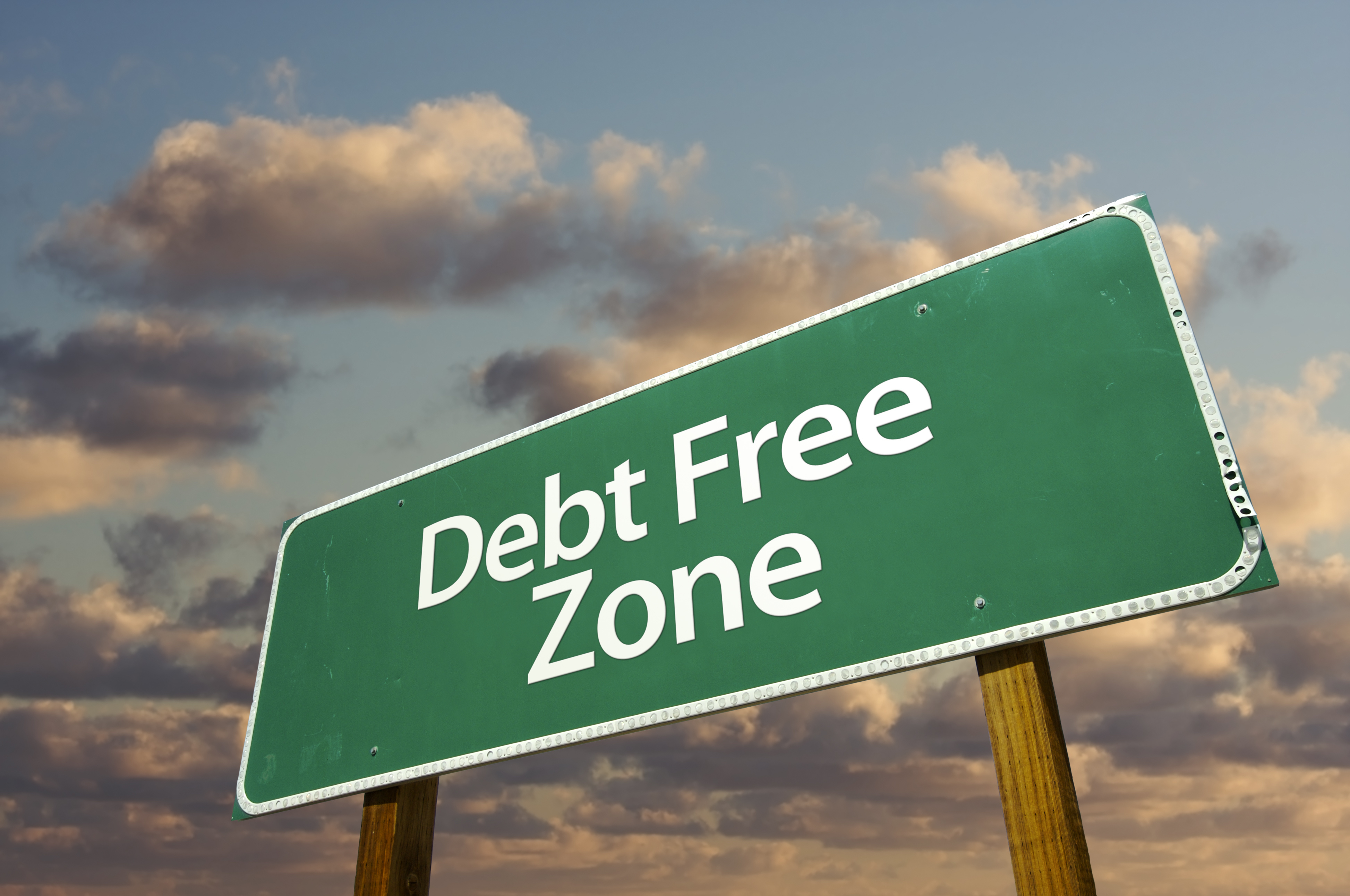Being stuck in debt can be one of the most difficult situations a person can go through. There is a reason why debt can be referred to as crippling debt. It’s because debt can have such a massive impact on your life and can hinder you in many ways. Though many people who are stuck in debt feel consumed by it and can’t see a way out. If they can see a way out, the thought of getting there just seems daunting. Yes, getting out of debt can be scary, especially in terms of knowing where to start. However, we know that it’s not impossible. It just takes a dedicated commitment to decide to act to turn your life around once and for all. So, that’s why we’ve put this blog together. To help show you how to get out of debt so that you can take control of your financial future.

Why do people get into debt?
The list of reasons people can get into debt can vary, depending on a person’s individual situation. Though, the most common reason is because of bad spending habits that have built up over a long time. One of the most common forms of debt is the accumulation of credit card debt. Here is a list of some of the main reasons people get into debt:
Spending more than you earn
The number one rule for personal financial management is to spend less than you earn. So, if you are getting into the habit of spending more than you earn, over time you will find yourself accumulating debt. Though overspending is not always a result of bad spending habits and having little self-discipline. It can also be a result of emergencies or unexpected expenses. These can inevitably force you to spend more than you earn.
Reduced income
Unfortunately, sometimes debt can occur as a result of circumstances outside of our control. If you are let go from your job or if you become unable to work due to illness or injury this may result in a significantly lower income. However, your expenses are likely to stay the same. This will result in you having to spend more than you earn and potentially falling into debt.
Gambling
An addiction to gambling can be a fast cause of debt and an incredibly devastating one. People have lost their homes because of gambling debt. Gambling may be a fun way to win cash fast. However, it can also be a way to lose cash fast.
Saving too little or not at all
When people don’t put aside money from their income it means that they can be unprepared for when unexpected expenses arise and may fall into debt as a result.
Medical expenses
You could end up falling into debt as a result of having to pay an expensive medical bill. This might happen if you or someone in your family falls sick and you don’t have private health insurance. In addition, if you have a medical emergency and can’t work, this could result in a reduced income. Meaning you will have to spend more than you earn.
How can debt affect you?
If you’ve experienced debt, you’ll probably know how it can affect your life. Debt can have tangible effects on your life but it can also have serious emotional impacts – making life incredibly difficult. Some ways that debt can affect you include having difficulty affording to buy a home, you might not be able to travel, or even afford to send your kids to good schools.
The emotional impacts that debt can have on you include depression and anxiety. Making you feel as though you can’t face everyday life. Resentment is another emotional impact debt can create. Especially if you are in a marriage or partnership where you share finances. It can result in one person feeling negatively towards the other. Especially when one partner has worse spending habits than the other. Another impact that debt can have on a person is denial. Rather than facing the issue at hand, many people would rather bury their head in the sand. Even though it is hard to tackle debt, denial just makes things worse.
Despite the negative impacts of debt, it is not the end of the world. There are ways to get out of debt. Read on to find out exactly how to get out of debt.
How to get out of debt
There are several strategies you can adopt to get out of debt. If you take them all on board, you’ll be assured that, before you know it, you’ll be free of debt. It may just take some time. It could even take years. But the sooner you start, the sooner you will be free of debt. Even if it is going to take a long time, you’ll feel pride in the fact that you are working towards getting out of debt. On top of that, you’ll be adopting spending habits that will become second nature. Ultimately, you’ll be changing your life for the better. Here are our top tips on how to get out of debt:
Work out your budget
This is the absolute first step of how to get out of debt. Establishing a budget means working out exactly how much you earn versus how much you spend. This will help you to determine where you can cut back on some unnecessary costs, by making paying debts a priority. It will show you exactly how much money you can allocate to paying off debts and how much you will have to live comfortably. A good tool to help you budget is ASIC’s Money Smart Track My Spend App https://www.moneysmart.gov.au/tools-and-resources/calculators-and-apps/mobile-apps/trackmyspend. This app is an excellent tool to help keep a track of your spending and to stick to your budget.
Decide to stop borrowing money
When you decide you want to get out of debt, this will come hand in hand with deciding to stop borrowing money. When you borrow money, you get yourself further into debt. Decide that borrowing is not an option for you anymore and it will force you to look for alternatives. Ultimately, this will put you in a better financial situation.
Always make your repayments
When you are paying off any debts it’s important to never miss any repayments. Missing payments results in you having to pay expensive penalty fees. It also means you are not making any progress towards achieving the goal of getting out of debt. Though, if you have worked out your budget, you shouldn’t have a problem with making your repayments.
Increase your debt repayments
After establishing your budget, you might realise that there are expenses you can cut out. Instead, this money could go towards increasing your debt repayment amounts. It means that you’ll get out of debt faster.
List your debts in order of highest interest rate
Part of planning how to get out of debt is to organise all your outstanding debts. One way to do this is to list them in order from the highest interest to the lowest. It means you are putting the highest interest debts as a priority. These are the debts that you should work towards paying off first. Pay as much as you can towards the debt with the highest interest rate and work your way down the list.
Consolidate multiple debts
Alternatively, a way how to get out of debt, if you have multiple outstanding debts, is to consolidate them. The way this works is by, instead of paying multiple interest rates, you get one personal loan that pays off all your current debt balances. That way you only need to work on paying off the one loan repayment with the one interest rate. This can save you loads of money in the long term. In addition, this will take some of the stress away from managing multiple debts and keeping a track of them all.
Downsize your living costs (at least temporarily)
One way of how to get out of debt is to reduce your living costs. When you create a budget, it will help you to see where you can cut back on some things. It might mean you need to move into a cheaper apartment if you are renting. Or if you are a home owner you could consider renting out your place and rent somewhere cheaper. Perhaps your budget has shown you that you spend too much on eating out. These are costs you could cut back on (at least temporarily) until you are debt free and back on your feet.
Consider re-financing your home loan
If you are paying very high interest rates, it’s worth doing some research to see if you could find a better home loan. Re-financing to the right home loan could end up saving you thousands of dollars in interest rates in the long term.
Use your tax return to pay off outstanding debts
When you get your yearly tax return, it’s a good idea to put it to use as a way how to get out of debt. Tax returns can vary between a few hundred to a few thousand dollars. This could be a great contribution to paying off your debts.
File for bankruptcy or enter a debt agreement
If your debts are seriously out of control and you are struggling to keep afloat, one option could be to declare bankruptcy. Alternatively, you could consider entering a debt agreement which is a less severe form of bankruptcy. Essentially, bankruptcy is a legal agreement that you enter, with the purpose of paying off your outstanding debts. Your situation is managed by a trustee, and there are restrictions because of bankruptcy. However, it does free your debts up and allows you to keep on living again. You must pay off your debts over a long term, usually between 3 – 5 years. It will be a manageable monthly amount.
Have a garage sale (sell any unnecessary items)
Having a garage sale is a good idea to help you sell anything that you don’t need anymore. Not only will this help you to reduce clutter in your life but the money you make from the sale can go towards paying off your debts.
Look to increase your income
Another way how to get out of debt is to consider increasing your income. You could look for a job that pays a higher wage or salary. Alternatively, you may want to consider starting a side project that will earn you a side line income. One example would be to try and turn a make money from your hobbies.
Get help or financial advice
Finally, something that is worth doing when you want to get out of debt is to seek financial advice. A financial advisor will be able to recommend the best thing for you to do. Whether it’s to get a debt consolidation loan, enter a debt agreement or file for bankruptcy. They will be able to assess your individual situation and give you an idea on what the right thing is for you to do. If you are looking for free advice, Money Smart’s website has a great source of free debt advice.
Ultimately, being in debt can be incredibly difficult. Though, it’s not impossible to turn things around for yourself and start a fresh. If you are ready to turn your life around and be debt free once and for all – this is a totally achievable goal. Just follow our tips on how to get out of debt above and, before you know it, you’ll get out of debt. Don’t be afraid and think you are alone in this, there are plenty of people and resources out there to help you achieve your goal to be debt free.




